By the early 16th century, Europe’s ordinary people couldn’t read. The church offered an intimidating system of ritual and penance to earn salvation. The ‘spiritual’ roles of priests, monks and nuns were elevated above everyday occupations. The Pope’s church hierarchy was busy hoarding political power and wealth. But all this was to be shattered by the new dawn of the Reformation. Preceded by the renewed study of the Bible in the decades just before, it was first and foremost a rediscovery of biblical truth. It’s my belief that Luther and the other reformers did not introduce a new teaching, but rather rediscovered and re-emphasised the truths of the Gospel as taught by Christ, the Apostles and the early Church. The good news of salvation by grace alone, through faith alone, in Jesus Christ alone, was proclaimed and embraced across Europe. The Protestant Reformation marks the beginning of the modern era and as such, has shaped the world in which we live. While the movement revolutionised European politics, law, literature, science, and individual conscience, it was rooted in a renewed spiritual understanding of man’s relationship with God.
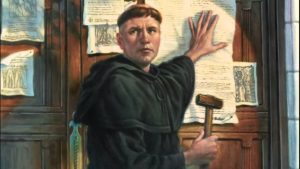 Around that time, Luther was angered by the sale of ‘indulgences’, a practice that offered release from ‘purgatory’ in exchange for gifts to the church. He argued they cheapened God’s grace and bypassed real repentance. So, on 31st October 1517, he nailed 95 theses – points to prompt debate– to the door of Wittenberg Castle church. Martin Luther didn’t “set out to break with the Church of Rome. That was not in his mind at all at that time. Indeed he was anxious not to do that”. He said, “No crime or abuse can justify a schism”. It is not surprising that he said that, he was speaking out of a background of some twelve centuries of the rigid Roman Catholic system and the idea of The One Church. All he was proposing to do was to call attention to a grave scandal that was taking place at that time in the Church in connection with what was called the “sale of indulgences”. But, nevertheless, in doing that, he was unconsciously taking the first step that led eventually to the Protestant Reformation and to the formation of a new Church.
Around that time, Luther was angered by the sale of ‘indulgences’, a practice that offered release from ‘purgatory’ in exchange for gifts to the church. He argued they cheapened God’s grace and bypassed real repentance. So, on 31st October 1517, he nailed 95 theses – points to prompt debate– to the door of Wittenberg Castle church. Martin Luther didn’t “set out to break with the Church of Rome. That was not in his mind at all at that time. Indeed he was anxious not to do that”. He said, “No crime or abuse can justify a schism”. It is not surprising that he said that, he was speaking out of a background of some twelve centuries of the rigid Roman Catholic system and the idea of The One Church. All he was proposing to do was to call attention to a grave scandal that was taking place at that time in the Church in connection with what was called the “sale of indulgences”. But, nevertheless, in doing that, he was unconsciously taking the first step that led eventually to the Protestant Reformation and to the formation of a new Church.
To his surprise, the document spread like wildfire in Germany and beyond, and provoked opposition in the church. The gulf between Luther and the Church became wider over the next few months and years as he continued to rely on the sole authority of Scripture to defend his views. He dissented over papal infallibility, transubstantiation, and the meaning of justification. These discoveries gave Luther remarkable confidence and also the energy to make them known. A showdown wasn’t long in coming…
To celebrate the 500th anniversary of the Reformation, our church is having a week of meetings from 8th October, I would be delighted to see you there.
By Rev. David McLaughlin



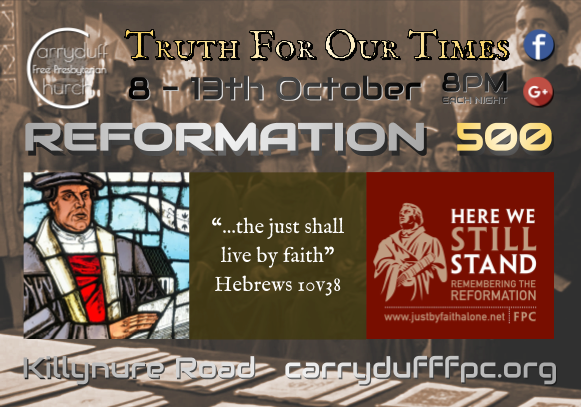

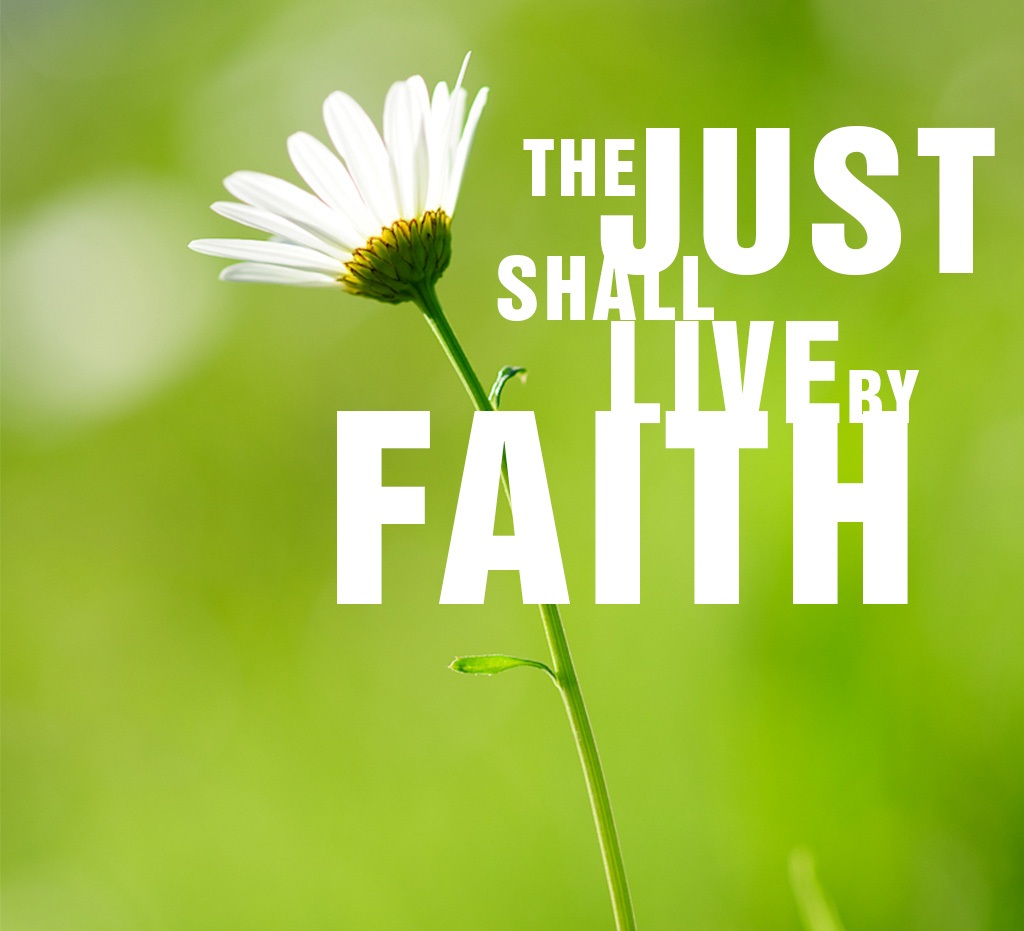
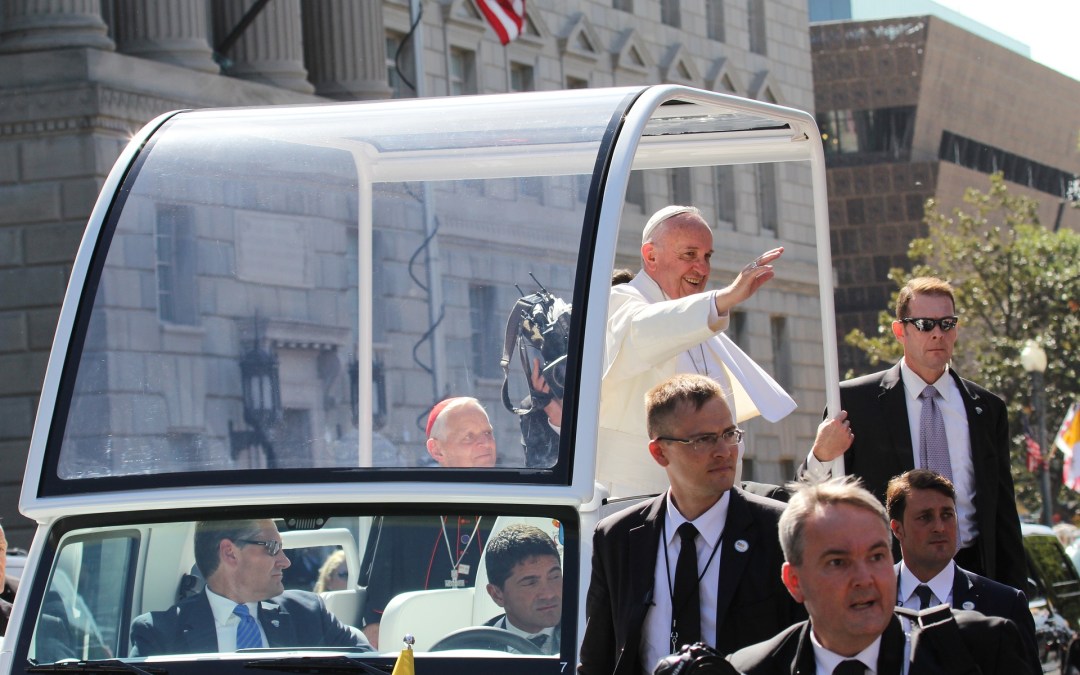

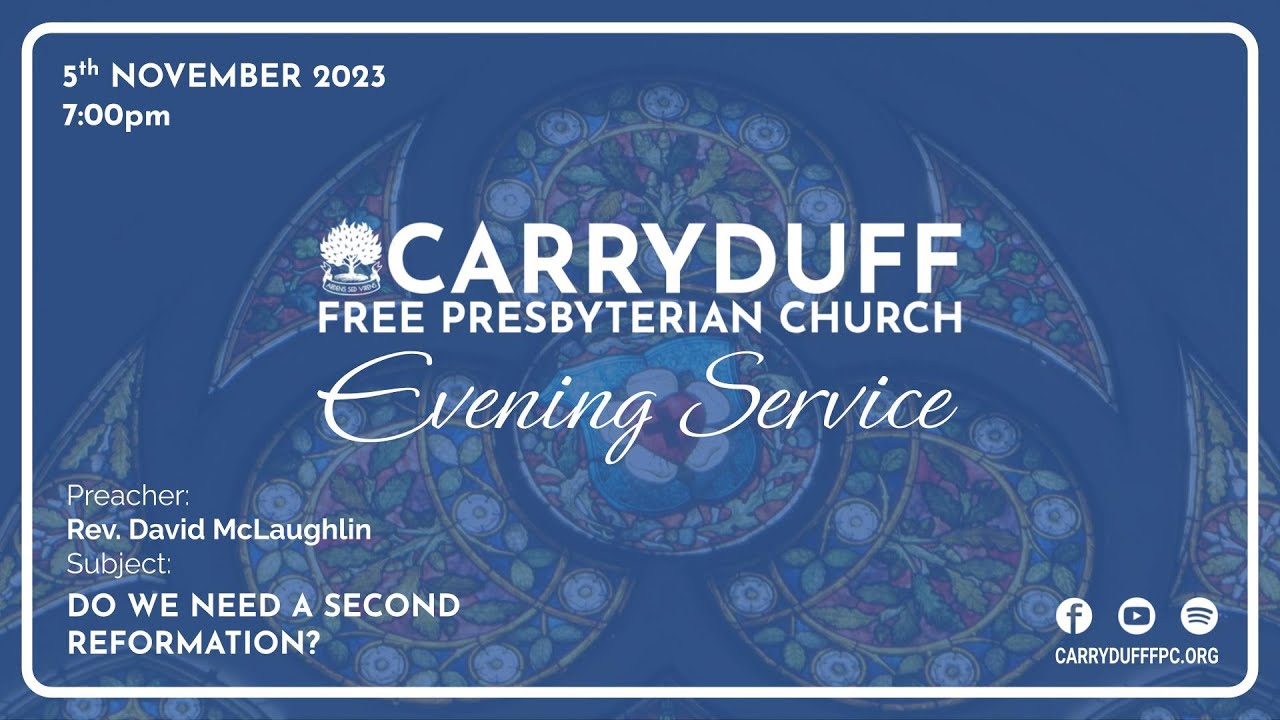
![The Just Shall Live by Faith: A Reflection for Reformation Day IMG-20251031-WA0019[2]](https://carrydufffpc.org/wp-content/uploads/IMG-20251031-WA00192.jpg)